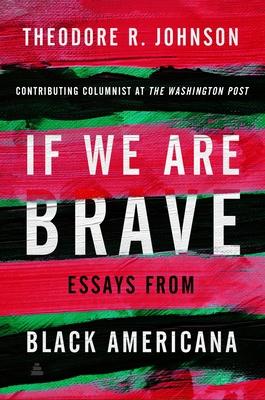The popular Washington Post contributing opinion columnist challenges readers to have uncomfortable conversations about race, drawing on the first-person perspectives of the author and Americans from diverse viewpoints and walks of life.
"The United States claims to be a nation founded on an idea," writes Theodore R. Johnson, "but Americans--even though we nod our heads to that assertion--do not agree on what that idea is, what it should do, or who it is for." The reality is that America is facing an existential quandary. Its citizens do not share a common vision for a democratic system in action, and even worse, do not share a common vision for what the country should be. We use the same words, but do not speak the same language.
If We Are Brave is a keen-eyed and sobering examination of this rift and how race exposes and challenges traditional conceptions of national identity, national mythology, and American democracy. It is both a cultural exploration and a consideration of the American experiment through the eyes and experiences of Americans of different generations that cuts across race, ethnicity, gender, region, religion, and class. Johnson reveals the subtle ways that racialized conceptions of the American identity and the imperfect culture of democracy have hindered our ability to connect with one another, carefully piecing together first-person accounts ranging from a Rust Belt diner to the back of a police car to a jail cell.
A beautiful but harsh indictment of a nation that aspires to be a more perfect union yet has consistently and painfully fallen short, If We Were Brave is a portrait of a nation at the precipice. It is an eye-opening, essential resource in a pivotal election year which will define America's future, and a much-needed beacon of truth that sheds a bright light on who we are.
